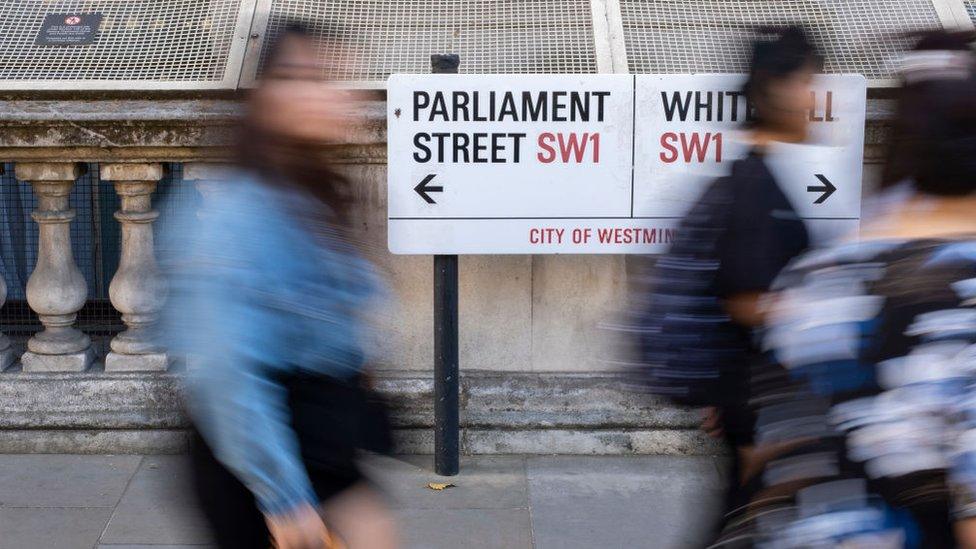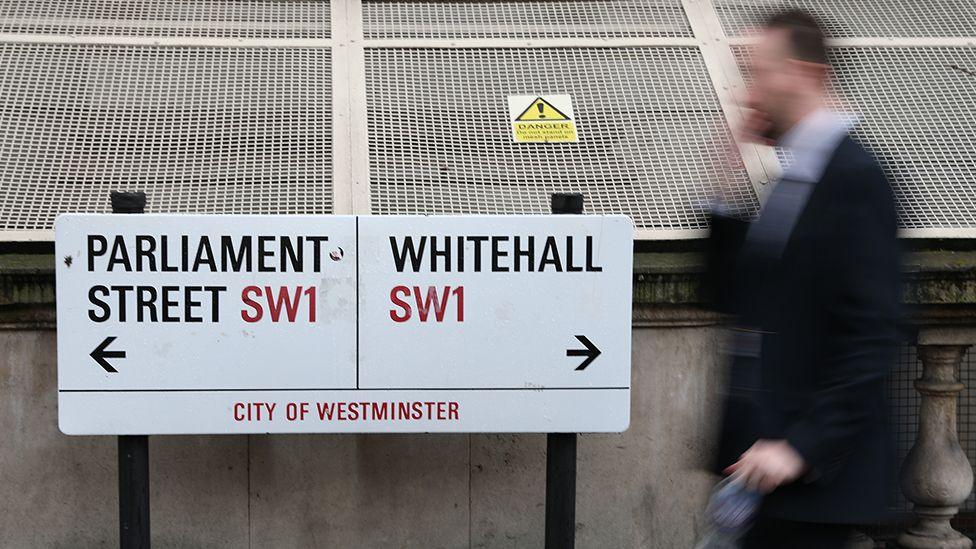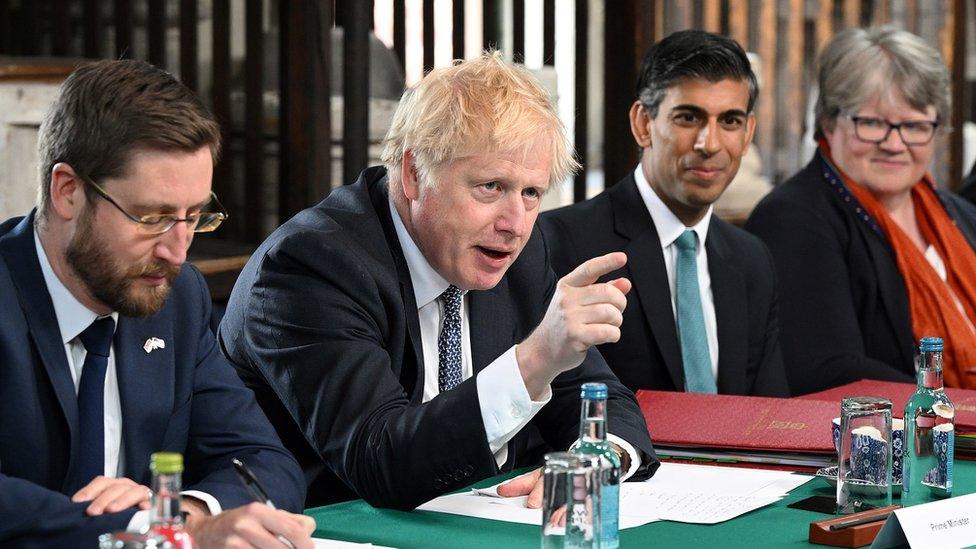Union anger over 26% cut to civil service redundancy pay
- Published

Trade unions have reacted angrily to government plans to cut civil servants' redundancy pay by an estimated 25.9%.
It comes as ministers seek to reduce civil servant jobs by 91,000.
The PCS trade union accused the government of wanting "to get job cuts done on the cheap".
But a Cabinet Office spokesperson said that in a time of "high national debt and increasing cost pressures" the Civil Service Compensation Scheme should be "affordable" to the taxpayer.
The government previously tried to reduce redundancy payments in 2017, but was forced to scrap its plan when unions successfully took court action.
PCS general secretary Mark Serwotka said: "Coming on top of a derisory 2% pay offer and the threat of 91,000 job cuts, these proposed cuts to our members' redundancy terms add insult to injury.
He added that his union would "fight these proposals as we did in 2017".
The Prospect union said it had "no confidence" the government consultation on the plans were being "carried out in good faith".
The plans to cut redundancy pay, outlined in a government consultation document,, external include limiting payments to three weeks' pay per year of service, down from one month, with payments capped at 18 months' salary for voluntary redundancy (down from 21) and nine months for compulsory redundancy (down from 12).
Defending the changes, a Cabinet Office spokesman said: "In the context of high national debt and increasing cost pressures, it's vital that all areas of government spending, including the civil service compensation scheme, are affordable as well as fair to both staff and the taxpayer.
"Reforming the scheme is a longstanding policy and not connected to headcount reductions. We will continue our close engagement with unions on these proposals."
Proposals to cut 91,000 civil service jobs were announced earlier this year, with the government saying it wanted to see staffing return to 2016 levels.
In April, Cabinet Office minister Jacob Rees-Mogg said staff numbers had risen to deal with Brexit and Covid but "those two issues are now fading therefore we can get back to the numbers we previously had".
Civil Service World magazine has reported, external that axing 91,000 jobs could cost up to £2bn in redundancy payments.
The decision of whether to proceed with the changes will be down to Rishi Sunak or Liz Truss - whichever wins the contest to be the next Conservative leader and next prime minister.

Former Chancellor Mr Sunak has said he would ensure senior civil servants spend at least a year of their career working "outside Whitehall or in industry" and that pay rewards would be based on performance rather than longevity of service.
He also says he would "press ahead with cuts to the back office civil service headcount".
Dave Penman, of the FDA union, which represents senior civil servants, said: "Rishi Sunak's proposals show he doesn't understand the basics of how the civil service operates.
"Civil servants have not received pay rises for longevity for nearly two decades and the Treasury's current policy, which dates back to the last Labour government, is that all payments must be linked to performance."
Earlier this month, Ms Truss promised to "wage war on Whitehall waste" by getting rid of 326 diversity and inclusion officers and introducing regional pay boards "so pay accurately reflects where civil servants work".
However, following a backlash from some Conservative MPs - who argued the policy would lead to people in London getting paid more than other workers - she scrapped the plan.
- Published31 May 2022

- Published13 May 2022

- Published13 February 2021
